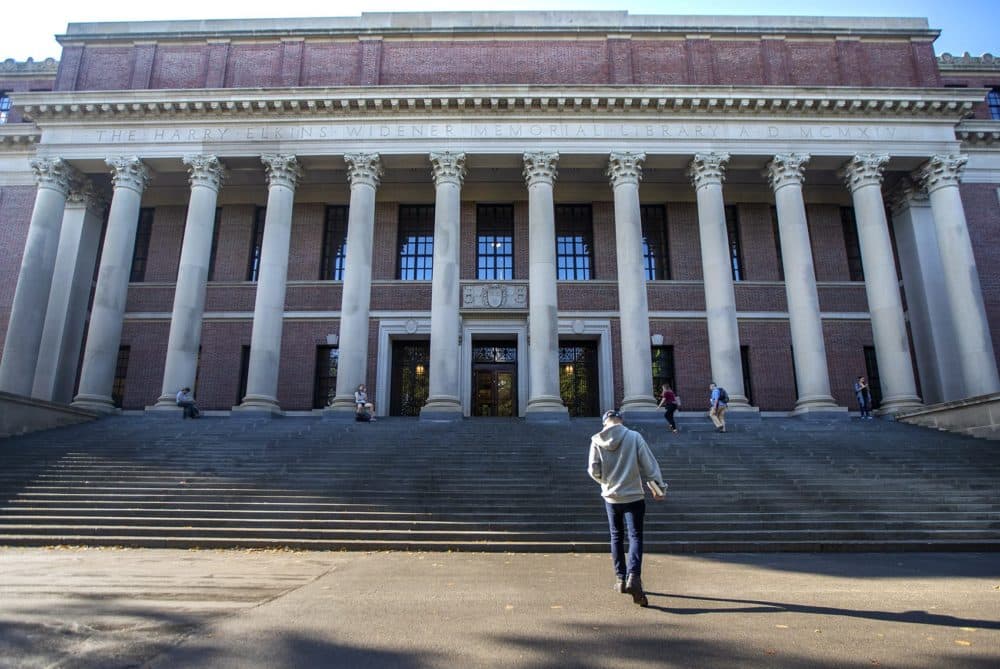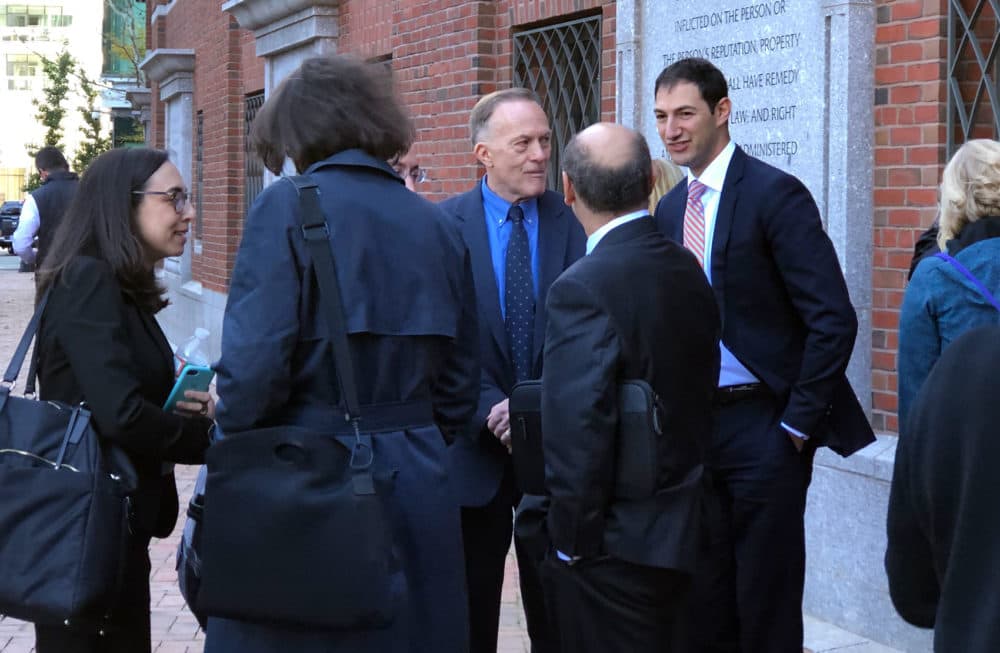Advertisement
Harvard Admissions Dean Says The University Changed Procedures After Previous Bias Claims

A closely watched lawsuit against Harvard, alleging discrimination against Asian-American applicants, entered its second day in federal court Tuesday.
John Hughes — an attorney for Students for Fair Admissions (SFFA), the group behind the suit — continued his insistent questioning of just one witness: William Fitzsimmons, Harvard's long-serving dean of admissions.
Hughes attempted to tie Fitzsimmons and Harvard to an ongoing history of systematic racial preference and exclusion. In response, Fitzsimmons calmly defended his office and the process as it stands today.
For example, Hughes asked Fitzsimmons whether he believed that Harvard’s holistic approach to admissions was first devised in the 1920s as a means to limit the number of high-performing Jewish applicants accepted into the school.
Fitzsimmons pushed back, saying he was aware of that charge — which has some validity — but added, “That's certainly a part of history that I wasn't present for.”
In his opening statement for Harvard on Monday, attorney Bill Lee admitted that Harvard is not proud of the fact that, for instance, former president Abbott Lawrence Lowell proposed a 15 percent "Jewish quota" in 1922. But Lee implied those practices are well behind the university.
Hughes and SFFA, on the other hand, have tried to contend that Harvard has never stopped using its whole-student approach to admissions as a covert mechanism for excluding certain subgroups: If it was Jewish students a century ago, today it is Asian-American students.
“He’s quiet and, of course, wants to be a doctor."
A reader's comment on an Asian-American's application to Harvard, as surfaced in a 1990 investigation
Hughes introduced to the record a report from a prior investigation into possible anti-Asian bias in Fitzsimmons’ office.
That investigation, conducted in 1990 by the Office for Civil Rights at the U.S. Department of Education, ultimately concluded by finding no wrongdoing on Harvard’s behalf.
Harvard argued then that it had legitimate institutional reasons for giving an admissions advantage to top athletes and to the children of alumni, even though those groups disproportionately lack Asian-American members. And the OCR agreed.
But the resulting report also found that readers sometimes commented on Asian-Americans’ applications using stereotypical language.
One comment read: “Scores and application seem so typical of other Asian applications I’ve read: extraordinarily gifted in math with the opposite extreme in English.”
Another read: “He’s quiet and, of course, wants to be a doctor.”
Fitzsimmons didn’t seem flustered by the line of questioning, responding that he and his colleagues “abhor” all stereotypes. He also said his staff learned a lot from the 1990 OCR investigation, and that it changed their practices. Finally, he pointed to the ultimate exoneration of the university on the larger suspicion of systematic discrimination.

After the trial adjourned for the day, Bill Lee, who is an Asian American alumnus of Harvard and sits on its governing board, told reporters that those comments were a few regrettable notes among 110,000 files, and that Harvard has repeatedly been found to be a model of fair admissions by the Supreme Court.
Tuesday's line of questioning was pointed, but it never gathered momentum. That's because the session — already on an abbreviated schedule — was further shortened by a half-hour evacuation and lockout of the Moakley Federal Courthouse in response to an unspecified alarm.
During that time, lawyers from both sides mingled with press and the public on chilly Fan Pier at the back of the courthouse.
One lawyer working for SFFA said regardless of what verdict Judge Allison Burroughs hands down after this trial has concluded, he expects this case to be appealed up — even to the Supreme Court — in the next two or three years.

